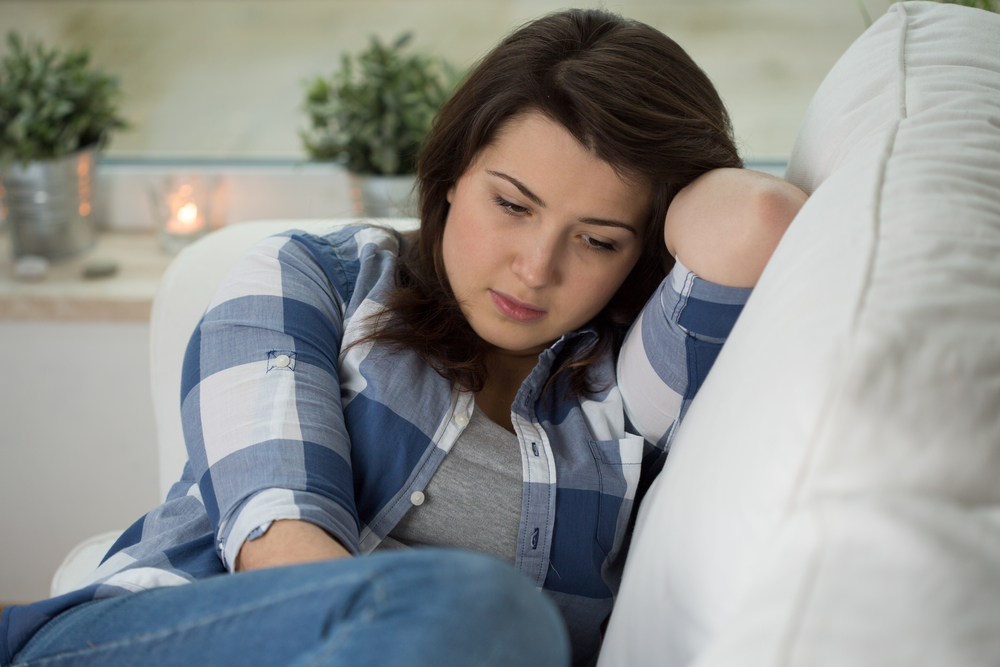

Couple Counselling may be needed when a couple is struggling because one partner is suffering with anxiety and/or depression. These are unpleasant conditions which affect approximately 1 in 10 people at some point in their lives. Although not the same, they are often experienced at the same time. If you suffer these, it can affect how you behave as a couple. As a result, it can make life seem very hard and impact on you, your partner and your family.
Anxiety and depression are unpleasant conditions which affect approximately 1 in 10 people at some point in their lives. Although not the same, they are often experienced at the same time. So if you suffer these, it can have a bad effect on you, your couple relationship and family.
What is Anxiety
Anxiety is a state of mind which negatively affects your emotional and physical well-being. It is a common reaction to stress and usually started by a worrying or frightening event or situation in your life. When there are difficult on-going situations at home, work or school, if they are not dealt with, they can generate fear, insecurity and anxiety.
When several worrying events occur, you can find yourself in a general anxiety state, called an anxiety disorder. Symptoms can be physical, emotional and behavioural.
Your GP will Help with Anxiety & Depression
If you feel bad enough, you may want to go to your GP to get help. Some physical symptoms can be sweating, trembling, headaches, stomach ache, and tension in neck, shoulders and back. Additionally, emotional symptoms can be nervousness, fear, panic and uncontrolled thoughts. As a result, behaviour can be withdrawing, avoiding situations, repetitive actions, sleeplessness.
Couple Counselling for anxiety & depression
These symptoms are worrying for you and your partner and over a period of time begin to affect every area of your relationship and family life. As a result, it is then that couples look for help because of the problems caused by this anxiety and depression in the relationship.
Other disorders which show themselves as a consequence of stress are phobias, obsessive compulsive disorder, panic disorder and post-traumatic stress disorder. You may need to get specialised mental health help with these through your GP.
What is Depression

Depression can be caused by various factors, for example helplessness or hopelessness. This is when you find yourself living in a painful situation where you can’t see any way out or are afraid to change what is happening.
Sometimes this is caused by a broken or struggling couple relationship. We all need a measure of control in our lives, however something might be happening in your relationship which is making you feel unhappy and frustrated or afraid.
Couple Counselling for Anxiety & Depression can help if your relationship isn’t working well
You might feel powerless to change your situation, whether it’s your relationship, work or family. If you feel trapped, it can lead to anxiety and finally depression. So if you feel exhausted, mistreated or bullied, and you can’t express the anger and hurt you may feel, this can also lead to depression.
Symptoms can be low self-esteem, loss of energy or enjoyment in the usual things which give you pleasure. This can lead to low mood, loss of desire to communicate and no interest in sex. It can become hard to focus on tasks or follow conversations and there can be general fatigue, and thoughts of dying. It may help if you talk to a GP, but if the cause is an ongoing problem within your relationship, counselling could help.
How Couple Counselling for Anxiety & Depression can help
These situations where you suffer anxiety and depression can disturb your life and the life of those around you. Your husband or partner will be confused and worried about the way you are, as will your children, family and friends. Counselling can help you gently explore your personal situation, helping you gain some insight into it.
Your anxiety or depression may be due to something unrelated to your relationship, like grief or bullying at work. This may mean you need specific counselling for these situations. If, however, you are having problems in your relationship which have caused you to be anxious and depressed, then specialised couple counselling can help. If, on the other hand, your anxiety and depression are causing the problems and breakdown in your relationship, then couple counselling may also help you both to understand what is happening.
Areas to consider and make changes
Couple relationships, if not working well, can have a major impact on our emotions and affect us physically. Also, unhappiness or resentment can affect the way we think.
Couple Counselling can help negative thought patterns
Are you aware of yourself thinking about things over and over? Do you constantly replay things that have been said or happened? Thoughts can become repetitive and obsessive. This in turn can affect the way our brain functions. Our thoughts can affect our emotions and behaviour. It is recognised that the brain can change (called neuroplasticity) and can be affected by what we think and do. Understanding this and making changes can be very helpful. Couple and relationship therapy can help with this.
Another area to consider when suffering from anxiety and depression will be your life style. As a couple or an individual, what do you eat, what exercise do you take, and how does this affect you? Can this improve self-worth, assertiveness and regaining a lost sense of purpose? All these are important aspects of recovery.
How long will Couple Counselling for Anxiety & Depression take?
Anxiety and depression are often the end result of a period of time of discomfort, stress or unhappiness. It may take time to understand how this has come about and to get to the position of being able to take steps to recovery. Sessions will last for as long as required to understand and change aspects of your life and relationships and develop a sense of confidence and well-being.